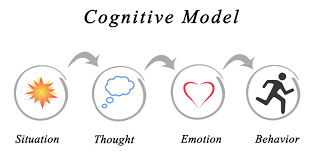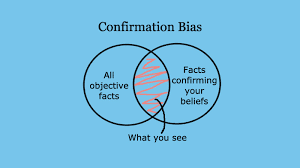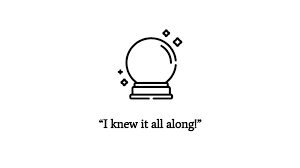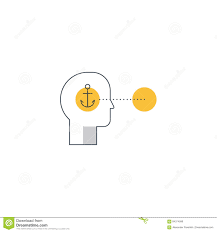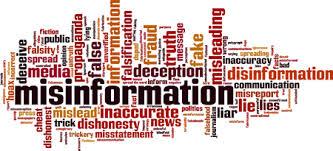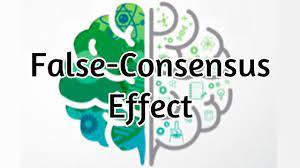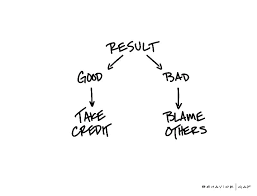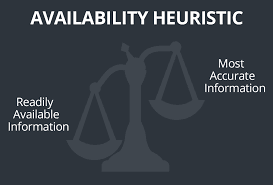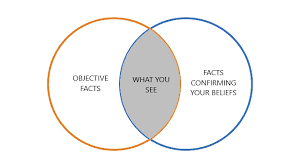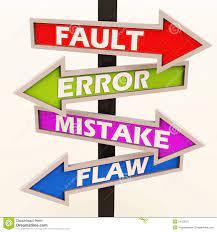Types of Cognitive Biases That Distort How You Think
Curated from: verywellmind.com
Ideas, facts & insights covering these topics:
13 ideas
·4.65K reads
44
1
Explore the World's Best Ideas
Join today and uncover 100+ curated journeys from 50+ topics. Unlock access to our mobile app with extensive features.
THEORIES COGNITIVE PSYCHOLOGY
List of Common Cognitive Biases
While people like to believe that they are rational and logical, the fact is that people are continually under the influence of cognitive biases. These biases distort thinking, influence beliefs, and sway the decisions and judgments that people make each and every day.
Why do these biases happen? Attention is a limited resource. This means we can't possibly evaluate every possible detail and event when forming thoughts and opinions. Because of this, we often rely on mental shortcuts that speed up our ability to make judgments, but sometimes lead to bias.
73
659 reads
1. The Confirmation Bias
The confirmation bias is the tendency to listen more often to information that confirms our existing beliefs. Through this bias, people tend to favor information that reinforces the things they already think or believe.
People on two sides of an issue can listen to the same story and walk away with different interpretations that they feel validates their existing point of view. This is often indicative that the confirmation bias is working to "bias" their opinions.
The problem with this is that it can lead to poor choices, an inability to listen to opposing views.
76
526 reads
2. The Hindsight Bias
The hindsight bias is a common cognitive bias that involves the tendency to see events, even random ones, as more predictable than they are. It's also commonly referred to as the "I knew it all along" phenomenon.
The hindsight bias occurs for a combination of reasons, including our ability to "misremember" previous predictions, our tendency to view events as inevitable, and our tendency to believe we could have foreseen certain events.
The effect of this bias is that it causes us to overestimate our ability to predict events. This can sometimes lead people to take unwise risks.
75
439 reads
3. The Anchoring Bias
The anchoring bias is the tendency to be overly influenced by the first piece of information that we hear. Some examples of how this works:
Like other cognitive biases, anchoring can have an effect on the decisions you make each day. For instance, it can influence how much you are willing to pay for your home. However, it can sometimes lead to poor choices and make it more difficult for people to consider other factors that might also be important.
73
419 reads
4. The Misinformation Effect
The misinformation effect is the tendency for memories to be heavily influenced by things that happened after the actual event itself. A person who witnesses a car accident or crime might believe that their recollection is crystal clear, but researchers have found that memory is surprisingly susceptible to even very subtle influences.
There are a few factors that may play a role in this phenomenon. New information may get blended with older memories. In other cases, new information may be used to fill in "gaps" in memory.
74
368 reads
5. The Actor-Observer Bias
The actor-observer bias is the tendency to attribute our actions to external influences and other people's actions to internal ones. The way we perceive others and how we attribute their actions hinges on a variety of variables, but it can be heavily influenced by whether we are the actor or the observer in a situation.
When it comes to other people, we cannot see what they are thinking. This means we focus on situational forces for ourselves, but guess at the internal characteristics that cause other people's actions.
The problem with this is that it often leads to misunderstandings.
72
309 reads
6. The False Consensus Effect
The false consensus effect is the tendency people have to overestimate how much other people agree with their own beliefs, behaviors, attitudes, and values.
First, the people we spend the most time with, our family and friends, do often tend to share very similar opinions and beliefs. Because of this, we start to think that this way of thinking is the majority opinion even when we are with people who are not among our group of family and friends.
This allows us to feel "normal" and maintain a positive view of ourselves in relation to other people.
70
274 reads
7. The Halo Effect
The halo effect is the tendency for an initial impression of a person to influence what we think of them overall. Also known as the "physical attractiveness stereotype" or the "what is beautiful is 'good' principle" we are either influenced by or use the halo to influence others almost every day.
One factor that may influence the halo effect is our tendency to want to be correct. If our initial impression of someone was positive, we want to look for proof that our assessment was accurate. It also helps people avoid experiencing cognitive dissonance, which involves holding contradictory beliefs.
71
276 reads
8. The Self-Serving Bias
The self-serving bias is a tendency for people tend to give themselves credit for successes but lay the blame for failures on outside causes. When you do well on a project, you probably assume that it’s because you worked hard. But when things turn out badly, you are more likely to blame it on circumstances or bad luck.
The self-serving bias can be influenced by a variety of factors. Age and sex have been shown to play a part. Older people are more likely to take credit for their successes, while men are more likely to pin their failures on outside forces.
71
256 reads
9. The Availability Heuristic
The availability heuristic is the tendency to estimate the probability of something happening based on how many examples readily come to mind.
It is essentially a mental shortcut designed to save us time when we are trying to determine risk. The problem with relying on this way of thinking is that it often leads to poor estimates and bad decisions.
71
280 reads
10. The Optimism Bias
The optimism bias is a tendency to overestimate the likelihood that good things will happen to us while underestimating the probability that negative events will impact our lives. Essentially, we tend to be too optimistic for our own good.
This bias can lead people to take health risks like smoking, eating poorly, or not wearing a seat belt. The bad news is that research has found that this optimism bias is incredibly difficult to reduce.
This tendency toward optimism also helps create a sense of anticipation for the future, giving people the hope and motivation they need to pursue their goals.
72
226 reads
Cognitive Biases Summary
The cognitive biases above are common, but this is only a sampling of the many biases that can affect your thinking. These biases collectively influence much of our thoughts and ultimately, decision making.
Many of these biases are inevitable. We simply don't have the time to evaluate every thought in every decision for the presence of any bias. Understanding these biases is very helpful in learning how they can lead us to poor decisions in life.
70
238 reads
Cognitive Bias Quote
“It is an acknowledged fact that we perceive errors in the work of others more readily than in our own.”
-Leonardo da Vinci
73
382 reads
IDEAS CURATED BY
CURATOR'S NOTE
Cognitive Biases
“
Tom Joad's ideas are part of this journey:
Learn more about problemsolving with this collection
Conducting market research
Analyzing data to make informed decisions
Developing a product roadmap
Related collections
Similar ideas
7 ideas
Cognitive Bias
psychologytoday.com
Read & Learn
20x Faster
without
deepstash
with
deepstash
with
deepstash
Personalized microlearning
—
100+ Learning Journeys
—
Access to 200,000+ ideas
—
Access to the mobile app
—
Unlimited idea saving
—
—
Unlimited history
—
—
Unlimited listening to ideas
—
—
Downloading & offline access
—
—
Supercharge your mind with one idea per day
Enter your email and spend 1 minute every day to learn something new.
I agree to receive email updates

